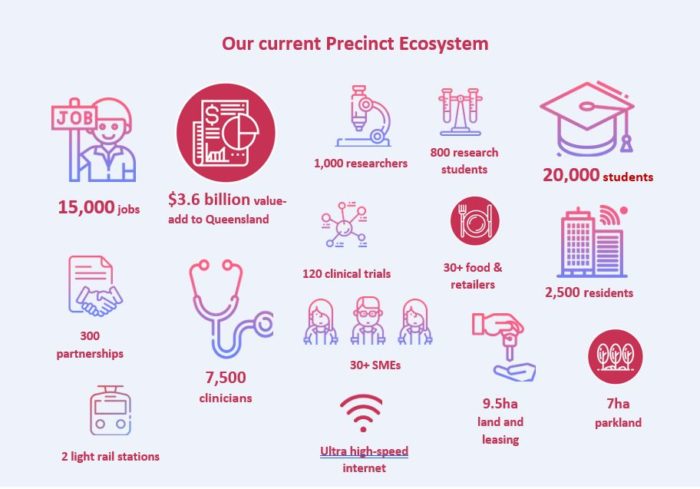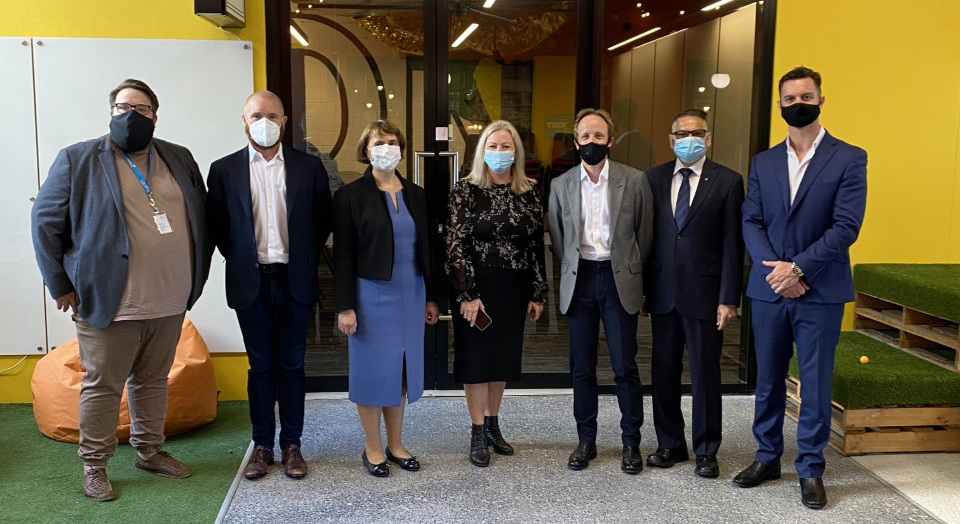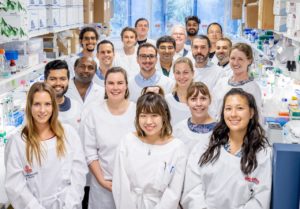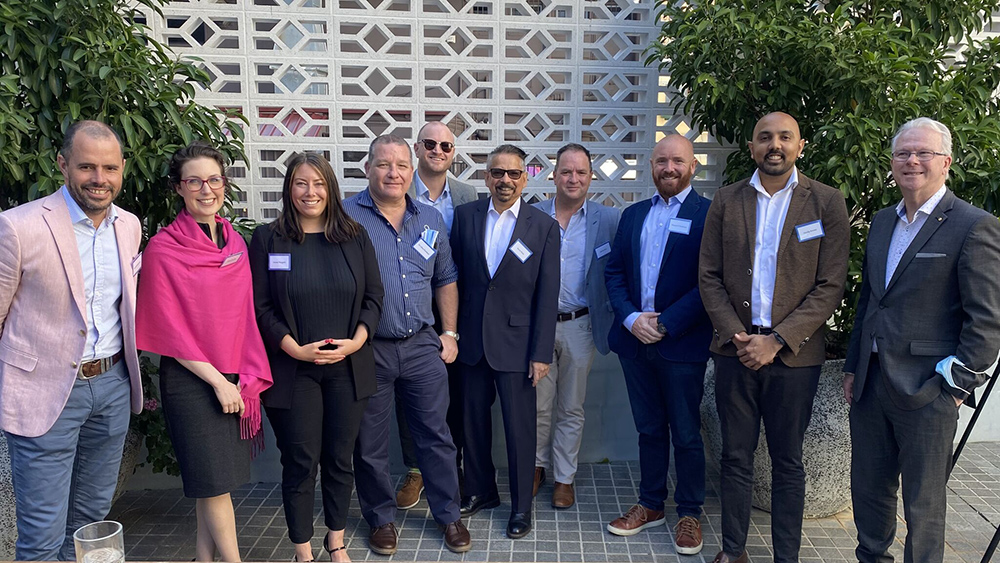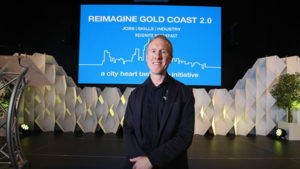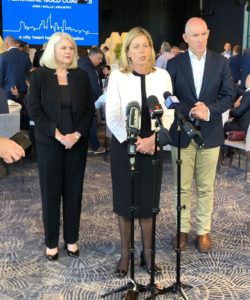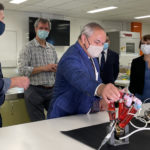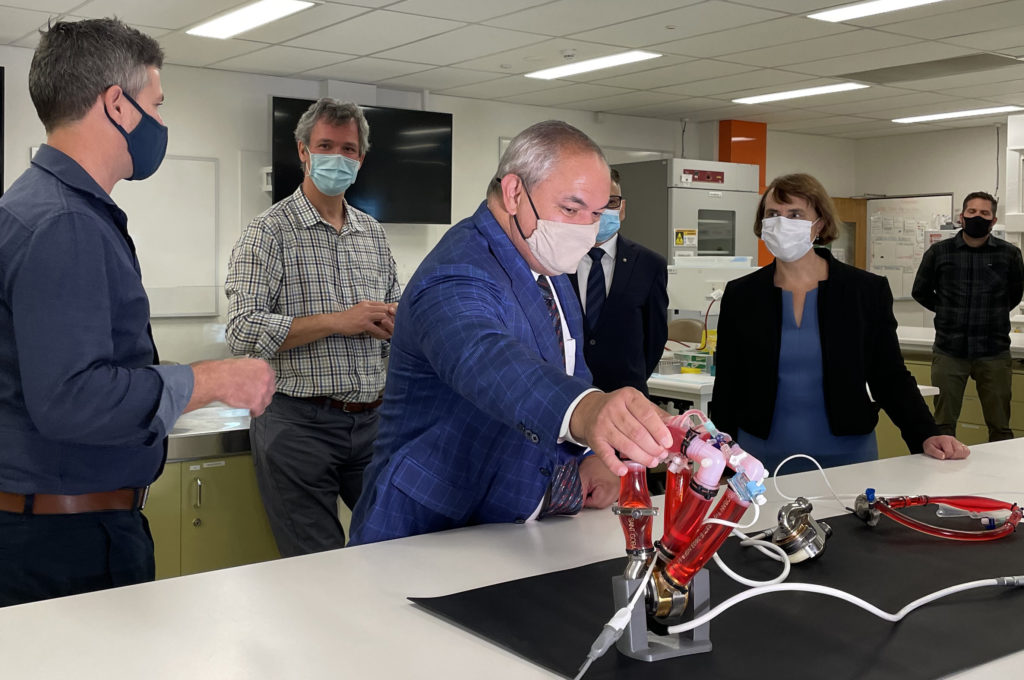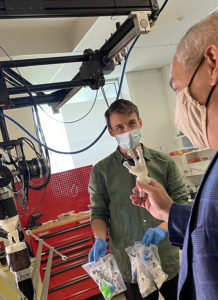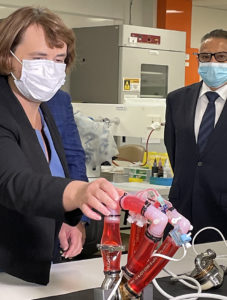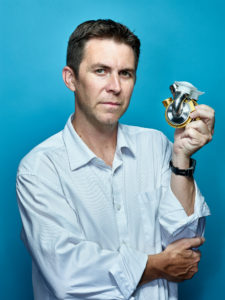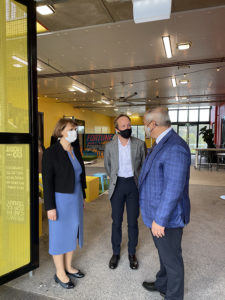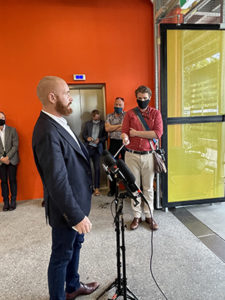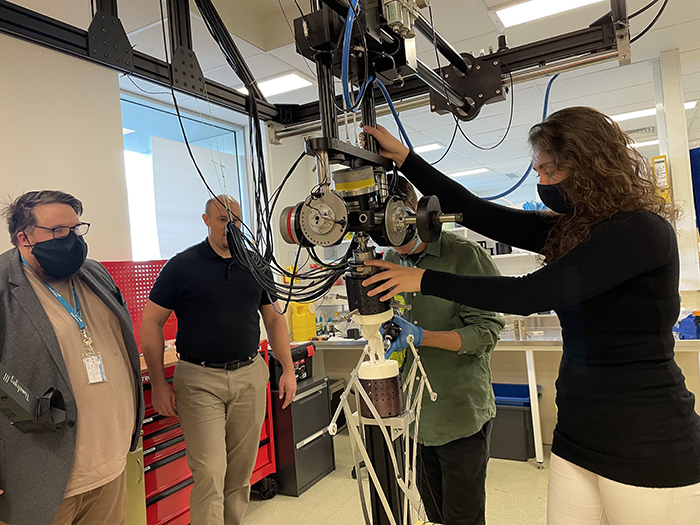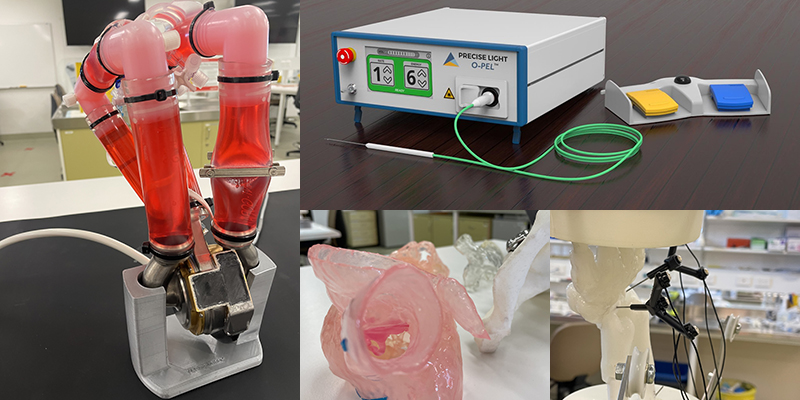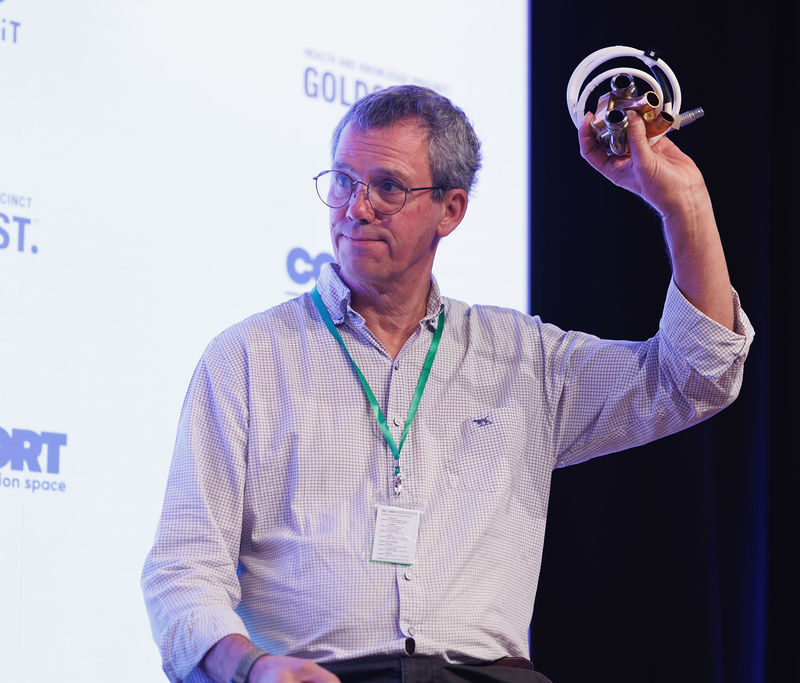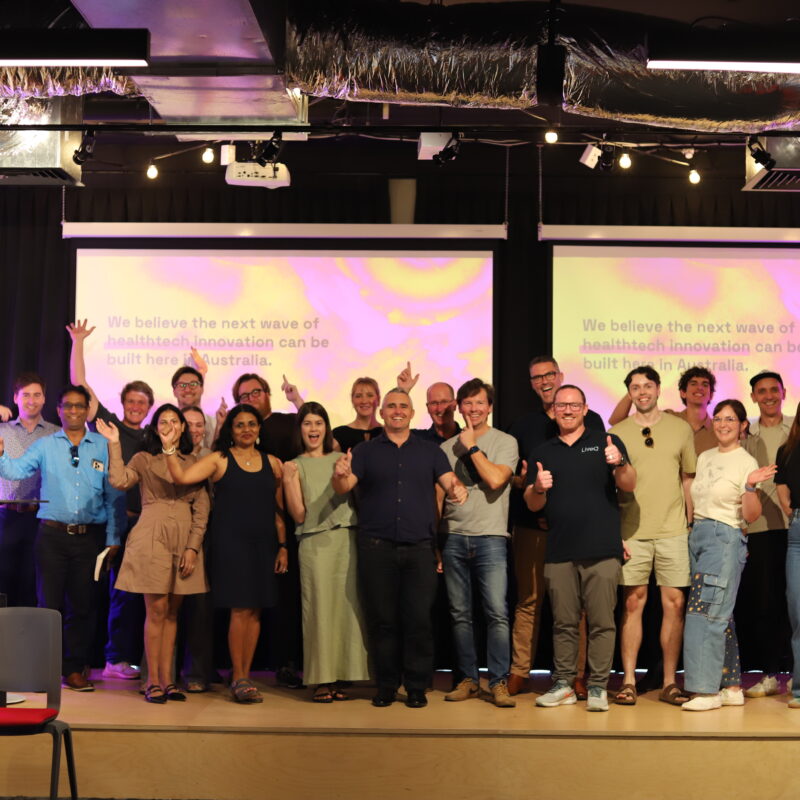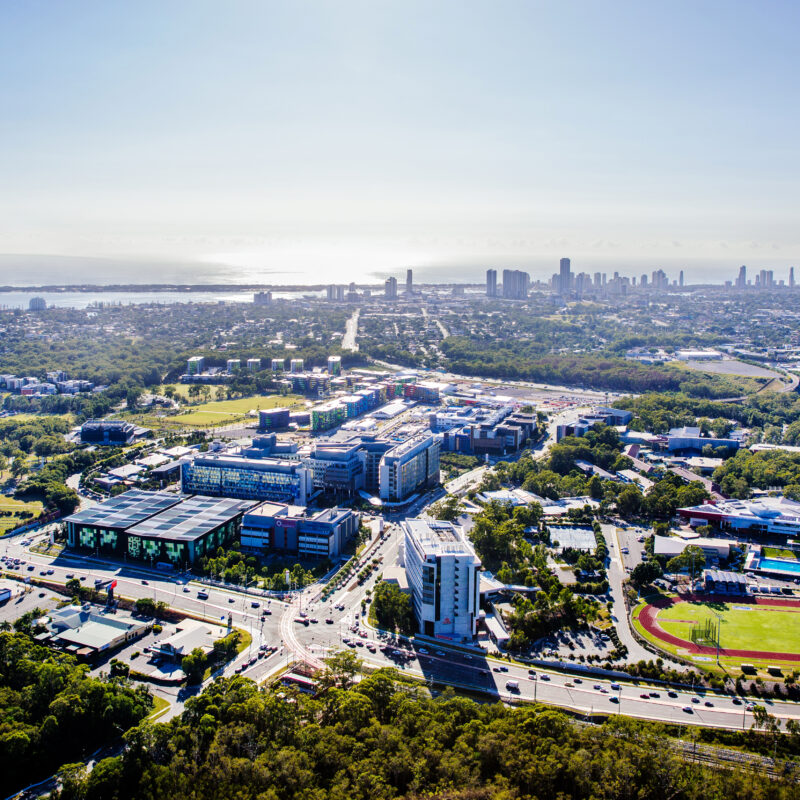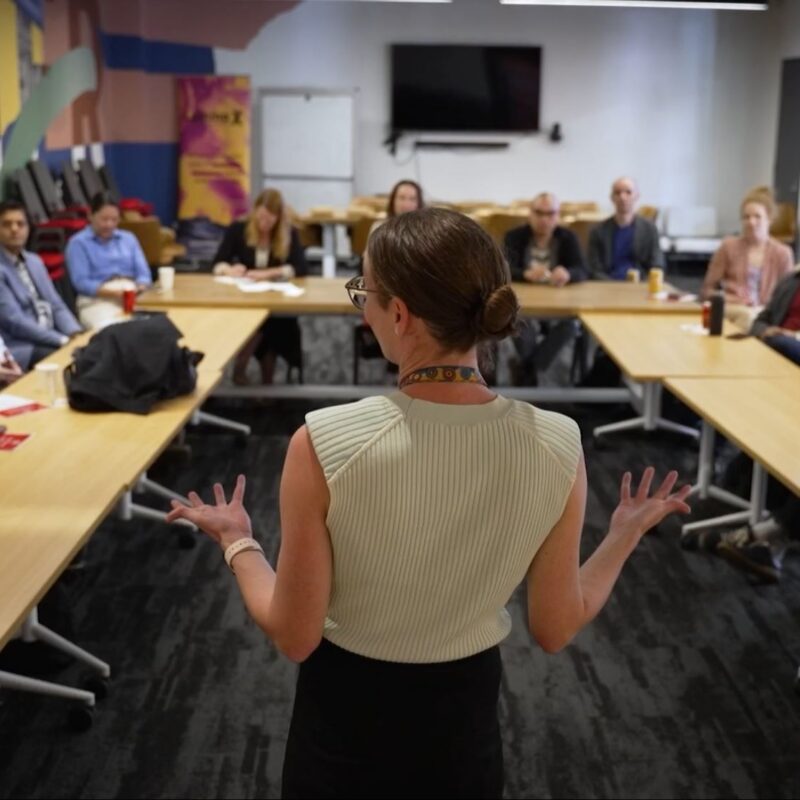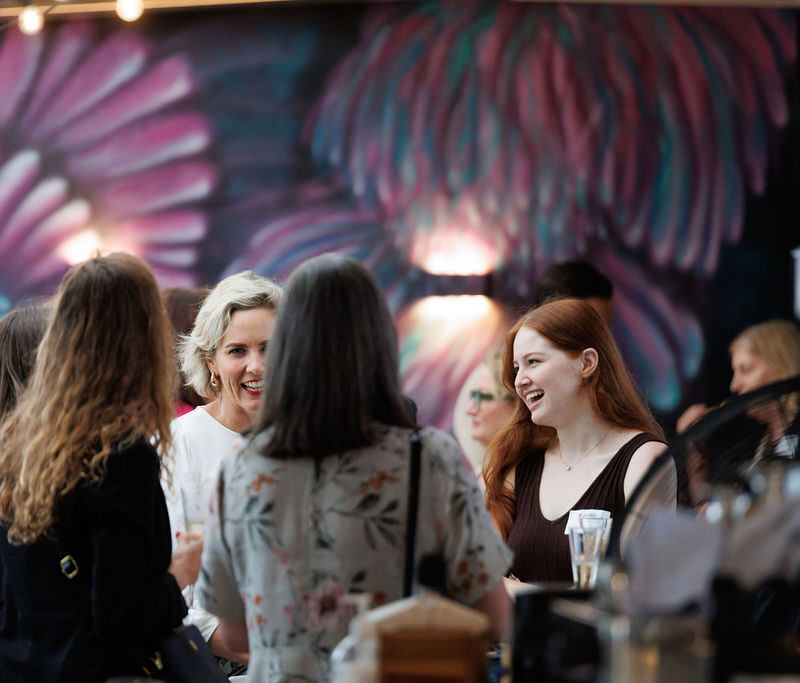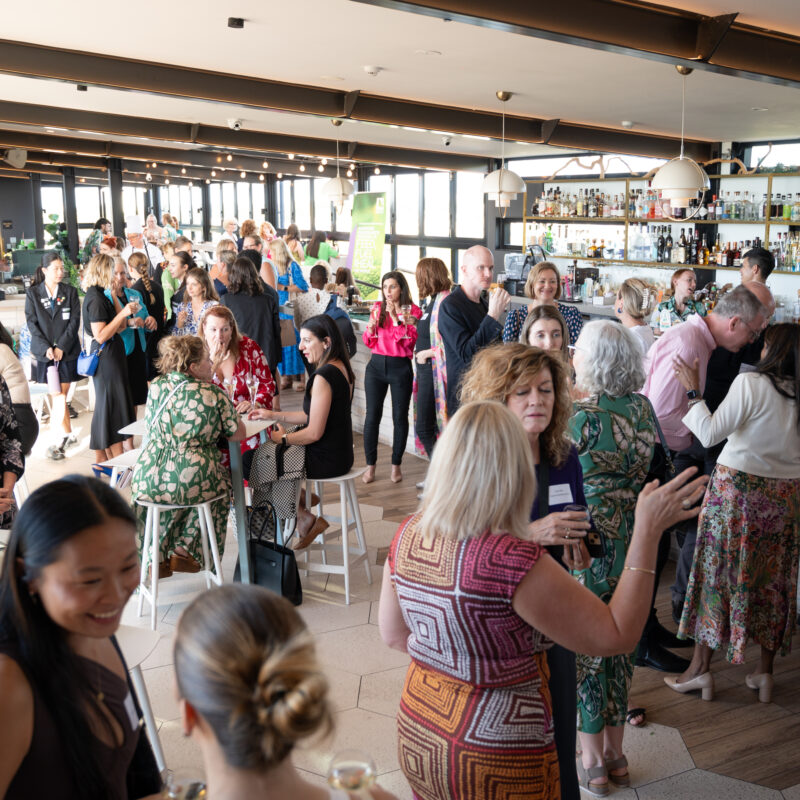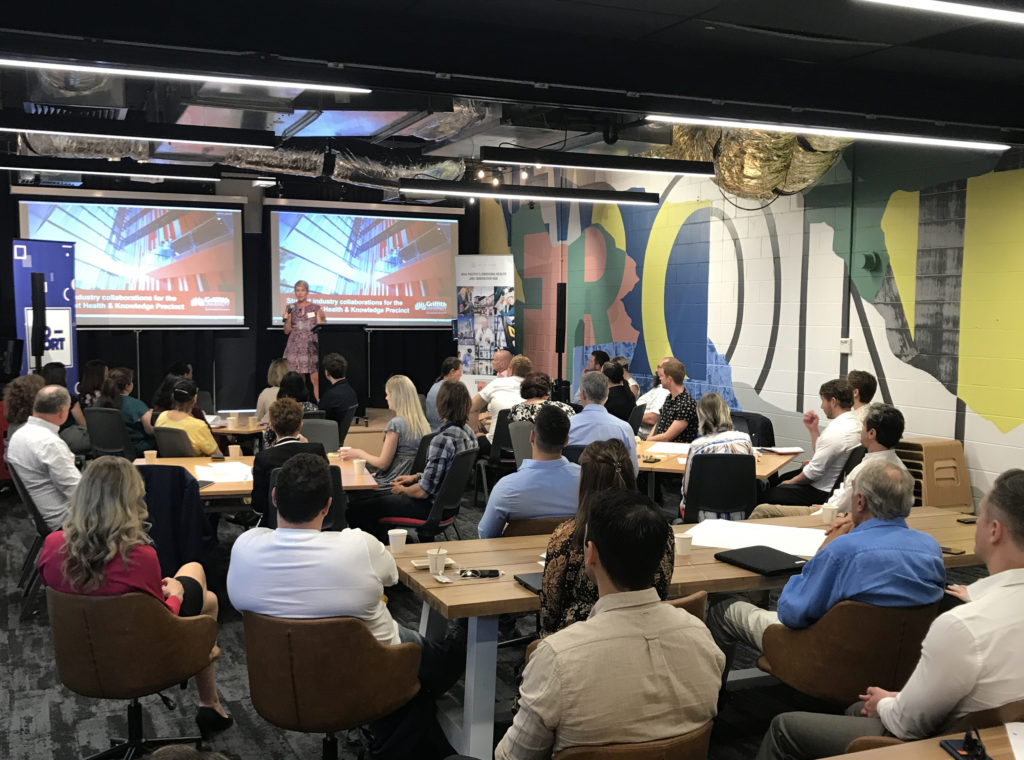
The Precinct is ramping up efforts to connect our companies with future talent through undergraduate internships and post-graduate industry research projects, as businesses based in our Cohort Innovation Space go on a hiring blitz to support rapid growth.
As the market for talent becomes increasingly competitive, the Precinct is on the front foot in securing a future recruitment pool.
A recent workshop, hosted by the Precinct Office at Cohort, focused on responding to the needs of Precinct companies for student talent, bringing industry-focused researchers and Griffith University student placement staff to meet with early-stage companies, to streamline the matching process.
The benefits for both scale-up companies and graduating students are significant, according to Gold Coast Health and Knowledge Precinct Director, Professor Mario Pinto.
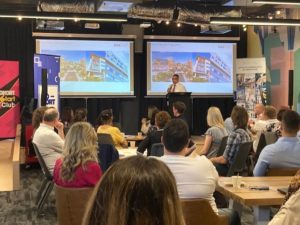
“Early-stage companies need students who are quickly able to fit into a small team to add value on projects, in a fast-paced entrepreneurial environment,” Professor Pinto says.
“For students, the dynamic nature of start-ups and scale-ups provides the opportunity to learn about all aspects of getting a business off the ground and make a real difference through their research or placement project to the growth of an emerging business, which differs to corporate placements which may offer more narrow experiences.”
Clinical Data-as-a-Service provider Datarwe is a great example of an emerging Precinct company that has maximised the value of student talent and used placement projects as a recruitment tool.
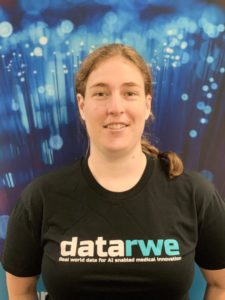
As a Griffith University PhD candidate, data scientist Dr Meg McConnell worked with Datarwe Chief Technical Officer Dr Kelvin Ross through one of his other ventures prior to Datarwe’s formation, while being guided by Advisory Board Member and Gold Coast Hospital and Health Service Medical Director of Innovation, Dr Brent Richards, throughout her PhD focused on the analysis of Intensive Care (ICU) data.
“My thesis was focused around improving detection and analysis techniques of Heart Rate Variability; including the development of novel software and application of machine learning (ML) techniques,” Dr McConnell says.
“Dr Richards provided industry guidance which was particularly important for developing the software platform into something that would be of use to clinicians, while it was during my last project (Electrocardiogram or ECG classification), that I was able to work with Dr Ross within an industry context for a start-up called Fatigue M8, which is developing a fatigue management system for long-haul truck drivers.
The exposure to industry during my PhD was paramount to my career – it is the reason I was able to step straight into a job on the completion of my PhD, and it has certainly helped the transition from pure academic research, to targeted industry R&D.”
Meg commenced in her full-time role with Datarwe in March, where she evaluates and improves the quality of collected healthcare data, as well as developing predictive health analytics, such as predicting atrial fibrillation in post-cardiac surgery patients prior to onset.
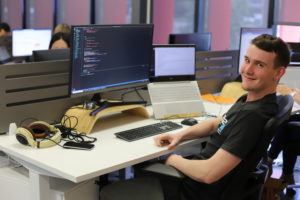
For data engineer Joe Burton, the pathway to employment came directly through a work-integrated learning (WIL) placement as a Griffith undergraduate student in the final semester of an IT degree.
Also working under Dr Ross, Joe’s placement involved writing a large portion of the back-end of a near real-time reporting dashboard, to be used in the Gold Coast University Hospital’s ICU.
“The project provided the perfect platform for demonstrating my ability, allowing the freedom to express myself while support was close by whenever needed,” Joe says.
“After successfully delivering on the initial iteration of the dashboard, I was offered a full-time role with Datarwe as a data engineer, where I was able to see the dashboard successfully deployed into production.
These days my work largely revolves around ingesting, storing and serving data efficiently to our in-house data science team and external researchers. Part of this is writing scalable systems to process data but, as the data in question is sensitive, a large amount of time is spent on the security model and ensuring that access is strictly governed and audited. It’s a loosely defined, fast-paced and challenging role, but very enjoyable.
The experience gained during the industry placement was essential to continued success in the industry. It provided exposure to industry-standard concepts given less attention in my degree program and helped me build soft-skills, particularly how to communicate complex technical ideas, which helped my transition to the workforce.”
While Joe is now supervising another WIL student on a project to detect arrhythmias from EEG signals, Meg is supervising PhD students on projects including Septic Shock onset prediction, and signal processing to investigate the robustness of algorithms and dealing with noisy data.
Now stepping up its student research connections significantly, Datarwe is onboarding four Industry PhDs who will be employed with the company throughout their studies at Griffith University, to work across research into how AI can be used to improve outcomes for ICU patients using real-world data.
Meanwhile, Cohort is reporting a ‘tech boom’ in hiring for roles among its members and other Gold Coast tech companies – recently profiling 14 local founders to mark Global Entrepreneurship week, and helping some of its member companies in a recruitment drive for more than 10 new roles in October.
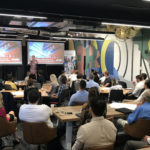
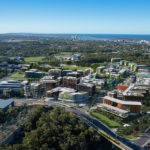
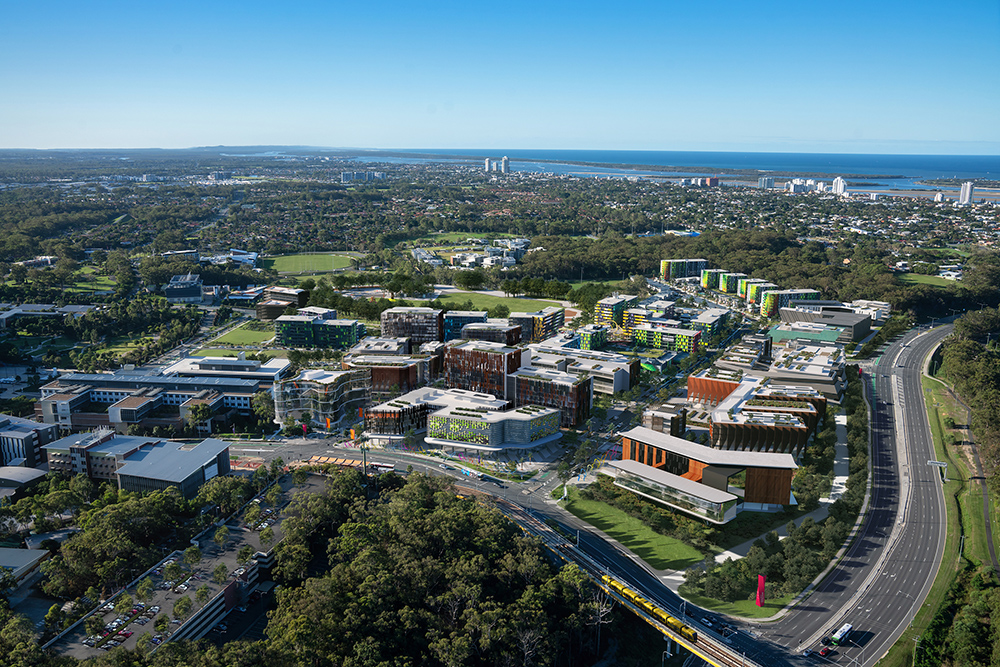
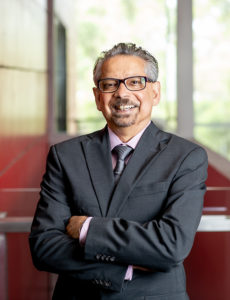 As we prepare to emerge from the COVID-19 pandemic and look to the 2032 Olympic & Paralympic Games in Southeast Queensland, a crucial decade of investment in Queensland’s key innovation places is set to deliver a jobs and economic bonanza, focused on retraining and upskilling for the high-productivity jobs of the future and nurturing a flourishing start-up culture.
As we prepare to emerge from the COVID-19 pandemic and look to the 2032 Olympic & Paralympic Games in Southeast Queensland, a crucial decade of investment in Queensland’s key innovation places is set to deliver a jobs and economic bonanza, focused on retraining and upskilling for the high-productivity jobs of the future and nurturing a flourishing start-up culture.